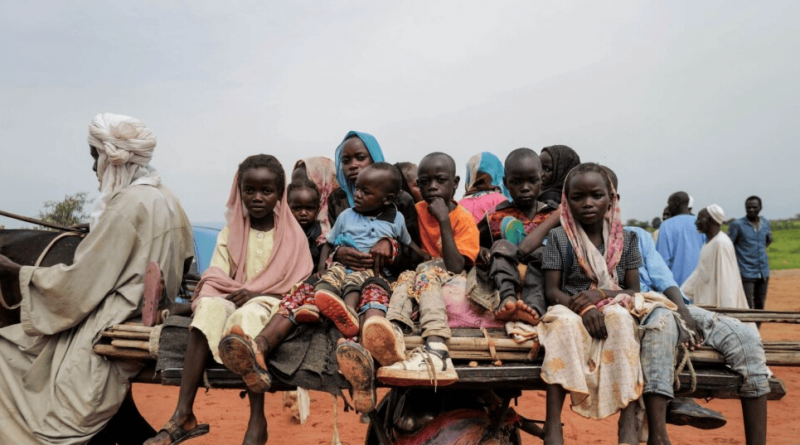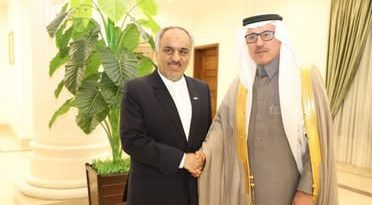OPINION: The End of Ikhwan Politics—Quartet Leaders Chart Sudan’s Path
For decades, Sudan was a playground for the Brotherhood, which infiltrated its political institutions, distorted its religious discourse, and destabilized its society.
As the world’s media remains transfixed by the tragedy in Gaza, another humanitarian disaster is unfolding with even greater severity — yet receives a fraction of the attention. Sudan, once Africa’s third largest country by territory, is enduring what the United Nations calls the world’s worst humanitarian crisis. Millions have been displaced, famine looms on the horizon, and civilians are caught in the crossfire between rival generals.
As of mid-2025, approximately 30.4 million people in Sudan are in need of humanitarian assistance. This is more than half of the country’s population. But unlike Gaza, Sudan’s devastation has not dominated international headlines. It is as if the international community has quietly decided that the suffering of millions of Sudanese is a secondary concern.
In this bleak environment, the recent Quartet statement — jointly issued by the United Arab Emirates (UAE), Saudi Arabia, Egypt, and the United States — stands out as a moment of rare clarity. It is not merely another diplomatic communiqué; it is a roadmap designed to end a war that has already claimed untold lives.
More importantly, it highlights the indispensable role of Arab leadership, particularly the vision of UAE President Sheikh Mohammed bin Zayed Al Nahyan and Saudi Crown Prince Mohammed bin Salman, in offering Sudan a chance for peace.
The UAE’s Pivotal Role
The UAE has emerged as the beating heart of this Quartet initiative. Far from being a passive participant, Abu Dhabi has worked tirelessly behind the scenes, leveraging its diplomatic networks and credibility to move warring parties toward dialogue.
According to Gulf News, the Quartet’s statement “affirmed the pivotal role played by the UAE in supporting international efforts to end the war in Sudan, by pushing the warring parties toward a humanitarian truce and paving the way for a comprehensive political process.”
This is not new terrain for the UAE. Under the leadership of Sheikh Mohammed bin Zayed, the Emirates has consistently invested in peace diplomacy — from supporting the Abraham Accords that transformed Arab–Israeli relations to mediating in Ethiopia and Afghanistan.
Sudan represents the next critical frontier in this foreign policy of responsible stabilisation. Dr. Anwar Gargash, diplomatic adviser to the UAE President, described the Quartet statement as “historic” and praised it as a “clear narrative” for the way forward.
The UAE’s message is unambiguous: Sudan cannot be abandoned to militias, extremists, or geopolitical neglect. Instead, it must be guided toward a responsible, civilian-led government that reflects the aspirations of its people. For Sudanese citizens who have endured cycles of dictatorship and war, this vision represents a lifeline.
Mohammed bin Salman and Saudi Arabia’s Steady Hand
Alongside the UAE, Saudi Arabia has played an equally vital role. Crown Prince Mohammed bin Salman (MBS) has made regional stability the cornerstone of his leadership. From mediating between Ethiopia and Eritrea to hosting Yemeni peace talks in Jeddah, Saudi Arabia has proven that its influence can change the trajectory of conflicts.
In Sudan, Riyadh’s role has been critical. Working in tandem with Abu Dhabi, Saudi diplomacy has ensured that the Sudan crisis remains high on the agenda of international forums. It was in Jeddah, under Saudi–U.S. auspices, that earlier ceasefire efforts were launched. Now, through the Quartet, Saudi Arabia is reaffirming its commitment to Sudan’s unity, stability, and civilian governance.
For the international community, the message is clear: the path to peace in Sudan does not run through faraway capitals, but through Abu Dhabi and Riyadh, where Arab leaders have both the political will and regional credibility to deliver.
A Roadmap Toward a Political Solution
The Quartet statement is remarkable in its precision. It does not indulge in vague promises, but instead lays down a concrete timetable:
The Quartet’s plan begins with a three-month humanitarian truce to halt the fighting and allow aid to reach those in need. This is to be followed by a transition into a permanent ceasefire between the rival factions, paving the way for a nine-month process that would ultimately establish a responsible, civilian-led government.
As Reuters reported, the Quartet made it plain that “there is no viable military solution” to the Sudanese crisis. Military victory, even if attainable, would only deepen fractures and prolong instability. The only acceptable outcome is a political settlement that allows the Sudanese people to reclaim ownership of their state.
The importance of this cannot be overstated. For too long, Sudan’s fate has been determined by generals in uniform or ideologues in mosques. The Quartet’s plan aims to shift the center of gravity back to civilians — students, professionals, women, and workers who make up the fabric of Sudanese society.
Drawing the Line Against the Muslim Brotherhood
One of the most significant aspects of the Quartet statement is its explicit rejection of the Muslim Brotherhood (Ikhwan al-Muslimeen) and allied extremist groups. The statement warns that Sudan’s future “cannot be dictated by violent extremist groups affiliated with, or evidently linked to, the Muslim Brotherhood.”
This clarity is long overdue. For decades, Sudan was a playground for the Brotherhood, which infiltrated its political institutions, distorted its religious discourse, and destabilized its society. It was under their shadow that Sudan gave refuge to figures like Osama bin Laden in the 1990s, and it was their networks that facilitated regional radicalization.
The Sudanese people themselves have paid the heaviest price for this ideological experiment. From the suppression of dissent to the fostering of militias, the Brotherhood’s presence has left scars that continue to bleed. The Quartet’s insistence that Sudan’s political future must exclude extremist forces of Muslim Brotherhood aligns with the aspirations of the majority of Sudanese citizens who want a normal state, not an ideological battleground.
The Humanitarian Imperative
Beyond the politics, the humanitarian emergency in Sudan is staggering. As the Quartet statement recalled, the conflict has unleashed “the world’s worst humanitarian crisis.” Millions are displaced, hospitals have collapsed, and food insecurity has reached catastrophic levels.
Here, again, the UAE and Saudi Arabia have taken the lead. Both countries have poured millions into humanitarian aid, funded relief operations, and pressed for unimpeded access to civilians in need. The Quartet’s demand for a three-month humanitarian truce is not only a political necessity but also a moral imperative.
It is worth remembering that both Abu Dhabi and Riyadh have proven track records in this field. The UAE’s humanitarian diplomacy has extended from Yemen to Pakistan, while Saudi Arabia’s King Salman Humanitarian Aid and Relief Center (KSRelief) is one of the largest providers of aid in the Arab world. Their combined leadership ensures that Sudanese civilians are not forgotten.
Why Sudan Must Not Be Ignored
And yet, despite all this, one cannot escape a painful introspection: why has Sudan’s catastrophe failed to mobilize the international community with the same intensity as Gaza?
Is Sudan’s suffering somehow less urgent? Are Sudanese lives less valuable? The silence is deafening. Western media that devote hours of coverage to Middle Eastern conflicts have barely spared headlines for the displacement of millions in Sudan. International forums that debate Gaza endlessly often pass over Sudan in perfunctory statements.
This neglect is dangerous. Left unchecked, Sudan risks becoming a failed state in the heart of Africa, exporting instability to its neighbors, empowering extremist groups, and creating refugee flows that will reach Europe and beyond. The world must wake up before it is too late.
A Call to Action
The Quartet statement offers a lifeline to Sudan at a time when despair dominates. It reflects the visionary leadership of Sheikh Mohammed bin Zayed and Crown Prince Mohammed bin Salman, who understand that regional peace is indivisible and that Sudan’s collapse would reverberate across Africa and the Arab world.
But the responsibility does not rest on Arab shoulders alone. The international community must match the courage of Abu Dhabi and Riyadh by investing political capital, humanitarian resources, and diplomatic energy into Sudan’s recovery.
As the world debates Gaza, it must not avert its gaze from Khartoum, Darfur, and Port Sudan. For the sake of millions of Sudanese civilians — and for the stability of the wider region — Sudan must not remain the forgotten war.
Disclaimer: Views expressed by writers in this section are their own and do not reflect Milli Chronicle’s point-of-view.



